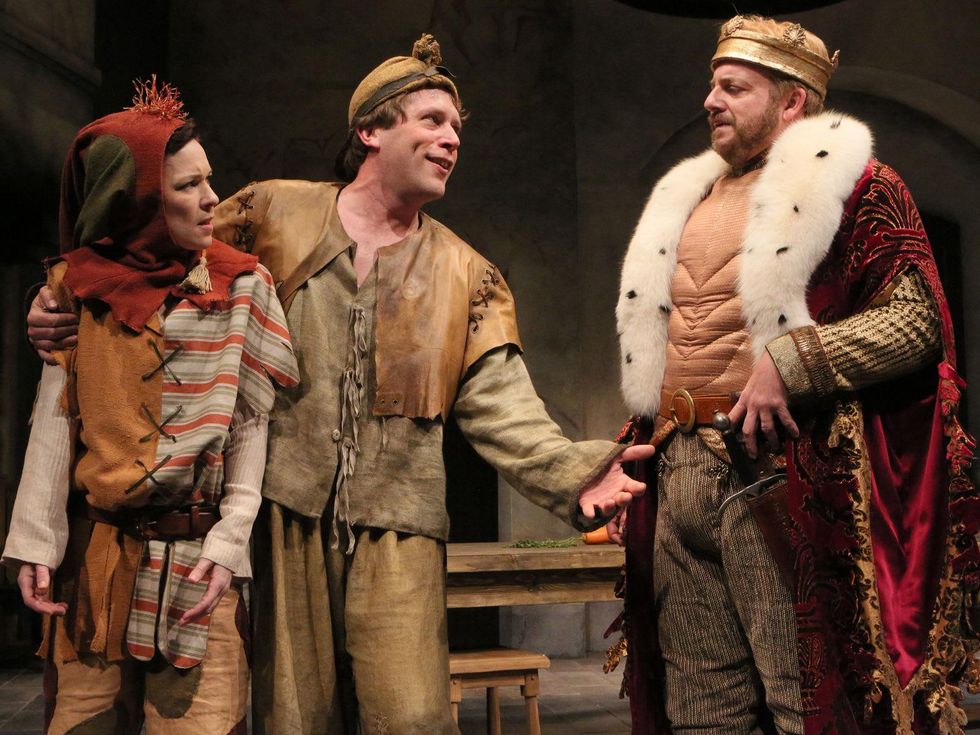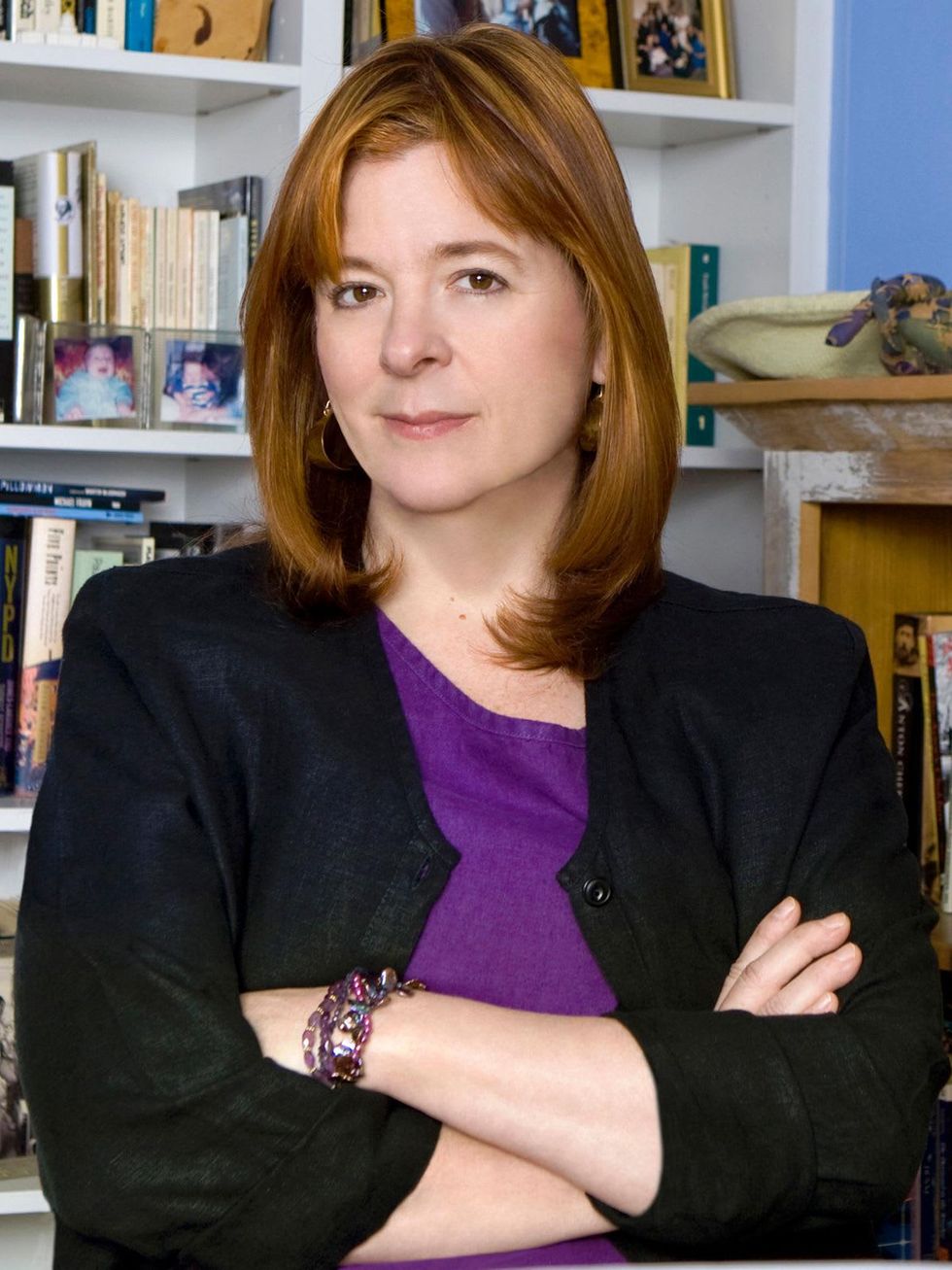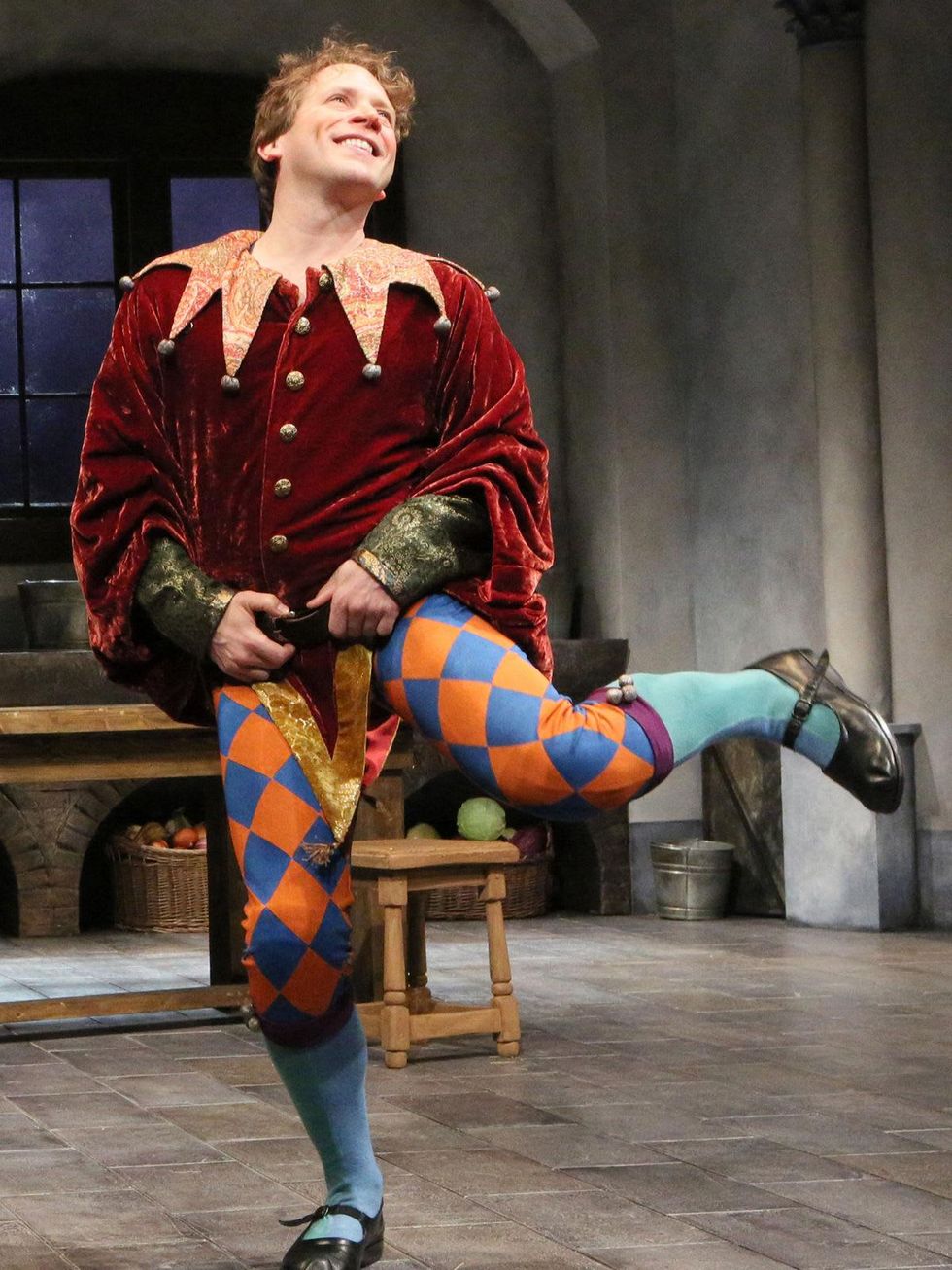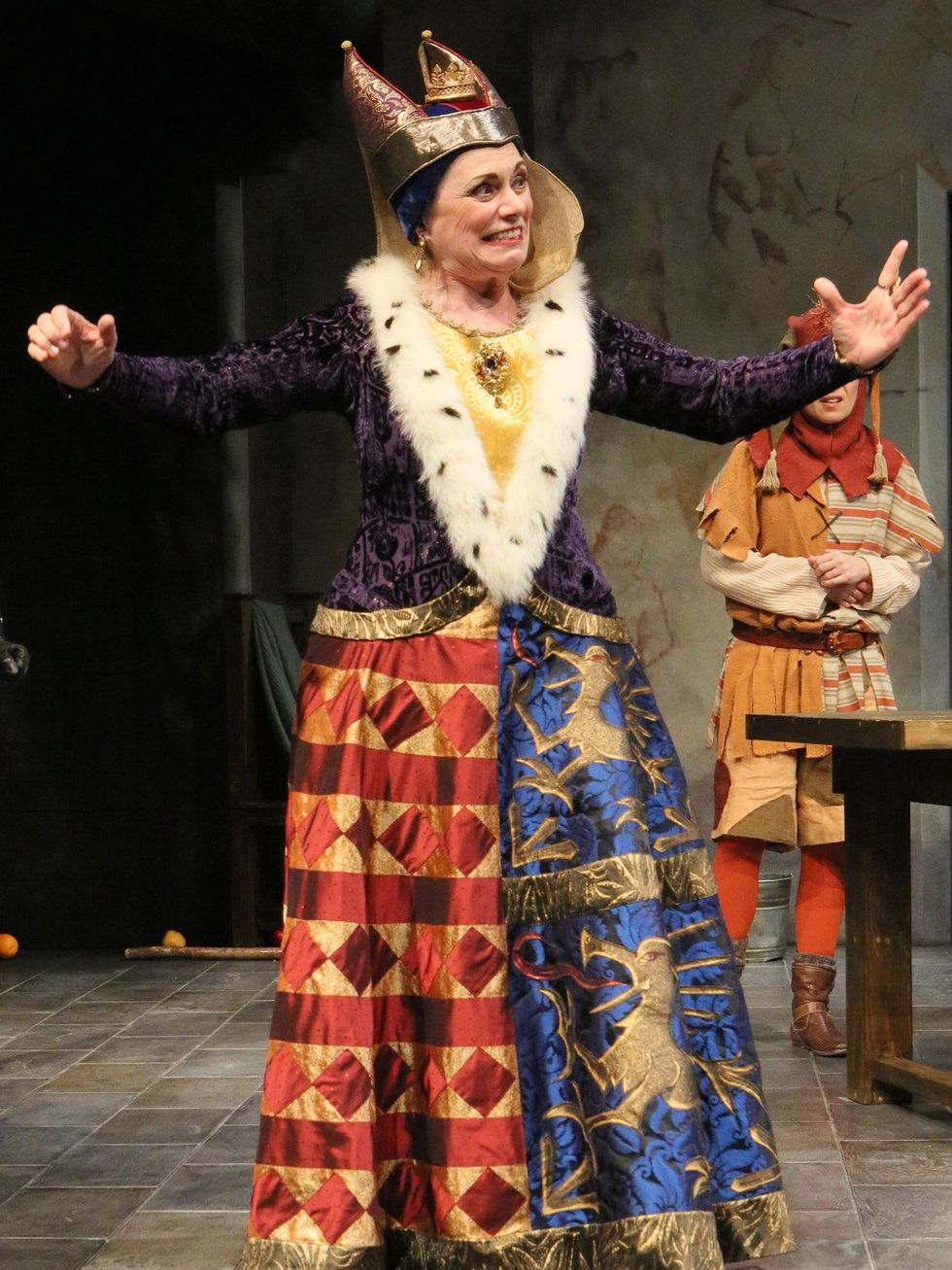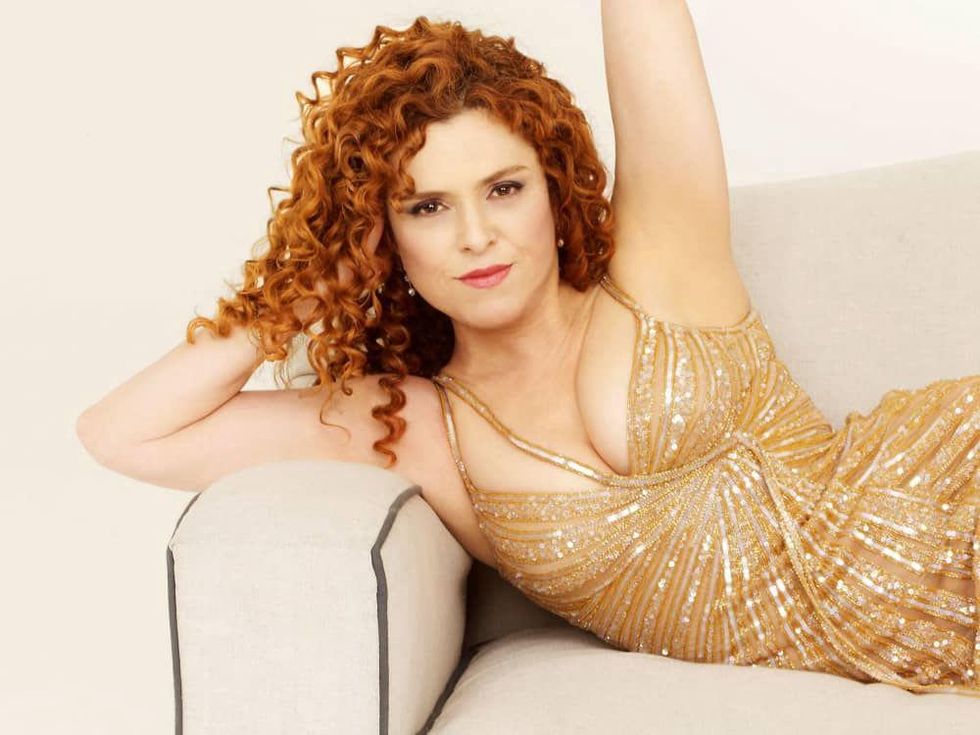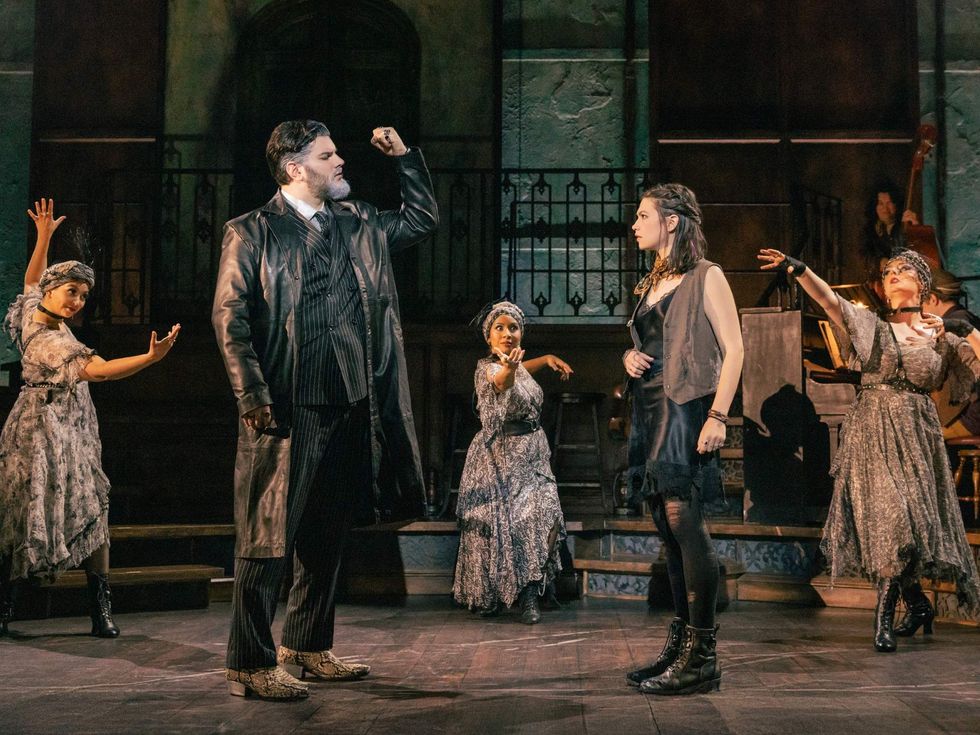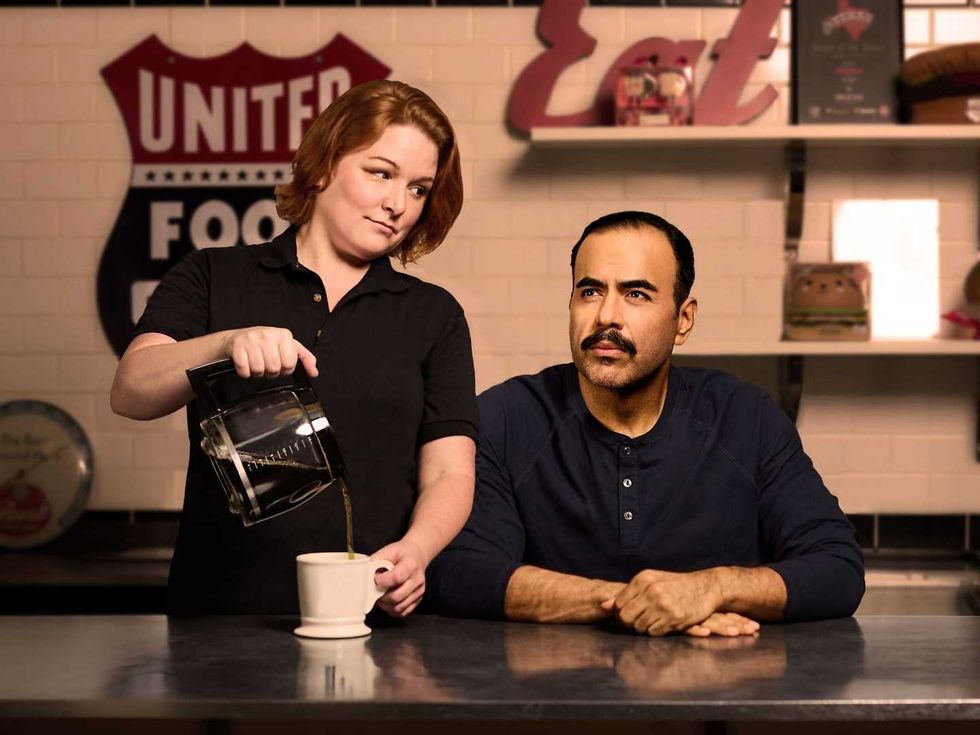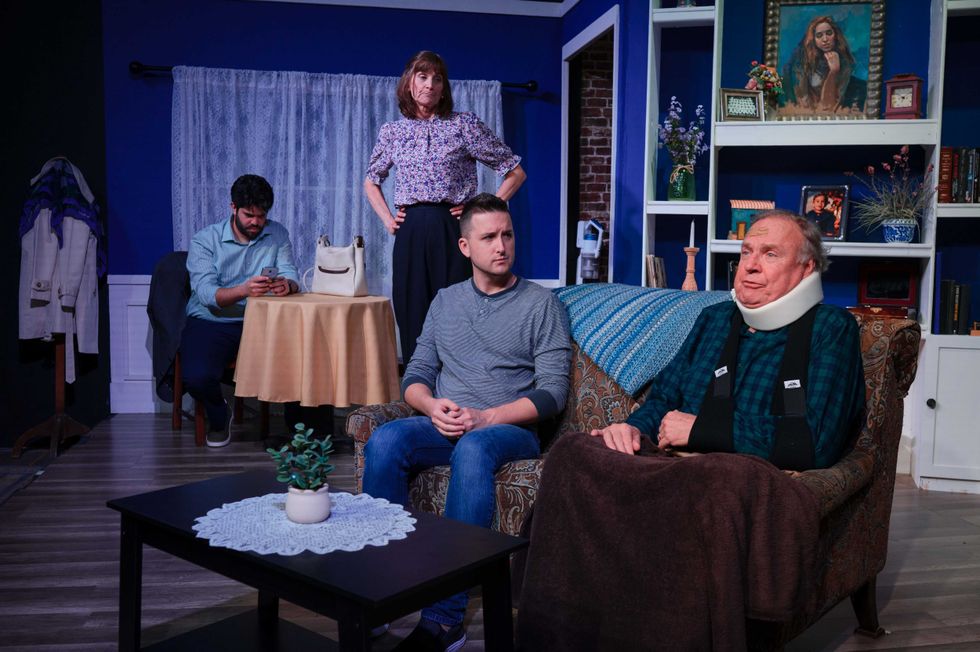Up Her Alley
Houston beats Broadway: A top playwright and Smash creator makes her choice clear — she's no Fool
Adult Language, Adult Situations, Beheadings. This is the description the Alley Theatre gives as a guidance for audiences planning to see the world premiere of Theresa Rebeck’s farce Fool. And while most adults breeze over these types of warnings this particular juxtaposition of advisories seems to aptly represent how the horrific can sometimes be hilarious especially when the beheadings are surrounded by cross-dressing, deadly food fights and lots of fart jokes.
Set in the sub-kitchen of a 14th century castle, Fool juggles questions about the nature of comedy, identity and power as two rival court jesters are forced by their kings to compete in a joke-off, with the loser losing his or her head.
When I recently had a chance to speak with Theresa Rebeck, I had to ask how a playwright so well known for scathing comic looks at contemporary power struggles, especially among the creative classes, came to write a play filled with references to witch burning and pig farming — one where kitchen wenches are threatened by literal cutthroats.
Foolish Inspiration
Rebeck explains that the idea of two fools in competition came to her several years ago, but she did not really discover their story until later.
“I had gone through a series of situations that were connected to big power structures, and I started to understand that anything about a pair of fools would have to also be about power and comedy. When those pieces began to fall into place, I decided it was time to start writing this,” she says.
“Sometimes when you do work in New York, everyone gets so obsessed with what kind of movie stars or TV stars you can put in this. It sort of starts to feel that it’s not about the play."
Along with being the author of the Broadway hit plays Seminar and Dead Accounts, the Pulitzer Prize nominee is also the creator and first showrunner of the NBC drama Smash. The show’s behind-the-scenes drama was well publicized and, for some viewers, might have become more interesting than the on screen drama. So it would be easy to interpret Fool as a allegory for Hollywood power struggles, but after seeing the play, I think that might be the least interesting take on this comedy.
In fact, it might be better to pair Fool with a trip to the Museum of Natural Science to view the Magna Carta exhibition, then to review Smash gossip.
Truth in Comedy
All the characters in the play from the fools to the villainous king’s advisors to the king himself are at the whim of whoever has the most power at any given moment. Sometimes that power comes from a sword or a seduction, other times from a well-timed joke. Even a seemingly decent king can easily become a despot when confronted with a “no.” Meanwhile, two fools just trying to tell some jokes, discover good comedy has a tendency to also reveal truths and sometimes that’s the last thing powerful people want to hear.
“This play quite literally becomes about speaking truth to power in a comedic voice,” Rebeck says.
Add in the constant exchanging of costumes and roles in the play, and Fool also struggles (and pratfalls) with issues of identity, a theme Rebeck has not explored much in her previous work.
“Everyone in the play is in some sense wearing a costume. . .You’re not so much a jester as you are a person in a jester costume,” Rebeck explains, also making connections between the life of a medieval jester and the way we life today. “As the other classes show up we perform for them, as we all perform for people who have more power than us.
“If the boss shows up, you want to wear a nice outfit. If the boss isn’t around you go: Ugh, I hate that guy. It’s very much about the way we perform for different classes of people and then when we aren’t performing you can still be in costume but you’re not performing the costume. There’s a lot of that that goes on, not just the fools but for everybody in the play.”
Fool Finds a Home at the Alley
Rebeck has been in town for rehearsals and is “thrilled” with what she’s seeing. Fool getting its world premiere at the Alley was no accident. Alley artistic director, Gregory Boyd, who is also directing Fool, attended one of the first readings of the play at the Eugene O'Neill Theater. When the play was ready Rebeck says she was quite “audacious” in calling Boyd and asking if he wanted the play for the Alley. She wanted Boyd especially for his gifts as a comic director.
“The play is complicated, but there’s a strong farcical element to it, so that was a big part of wanting to do it here because I could get it to Greg Boyd,” she says.
Another thing Rebeck finds refreshing about debuting a work so very far off Broadway is that the production is all about the play itself, not foremost a vehicle for a star.
“Sometimes when you do work in New York, everyone gets so obsessed with what kind of movie stars or TV stars you can put in this. It sort of starts to feel that it’s not about the play. The play somehow gets turned into a platform to attract stars. That gets a little wearing on the heart,” Redeck confesses.
At the Alley, she found “Largely the intent was to build a perfect a production of this play, with that being the main goal and that’s very exciting as a playwright to feel like you’re in hands that secure.”
Fool runs at the Alley Theatre through March 16.
